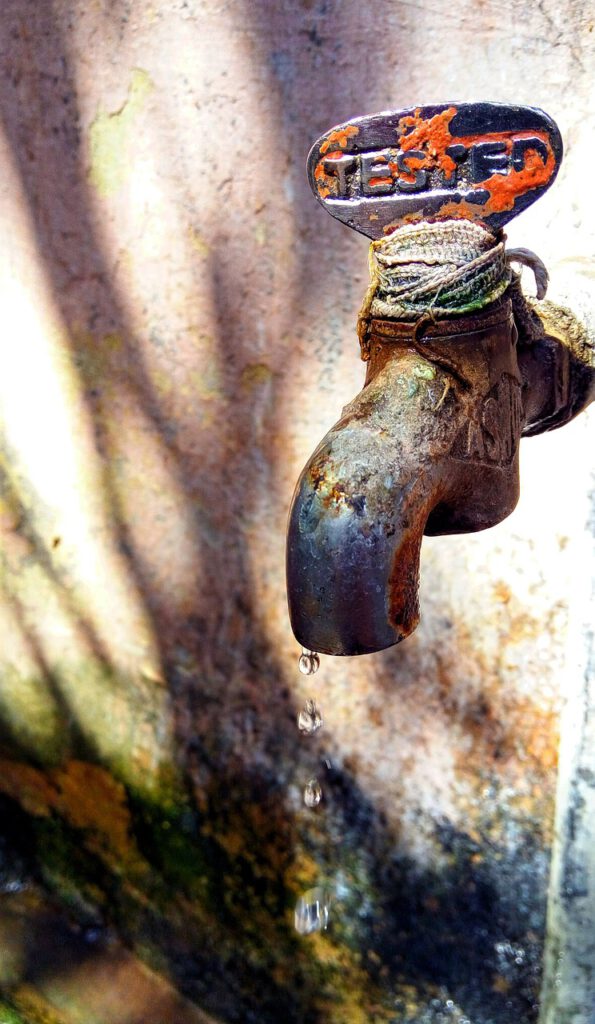Minimizing Lead Exposure in Your Plumbing System in Michigan
by siteadmin

In recent years, concerns about lead contamination in drinking water have heightened awareness of the importance of safe plumbing systems. Michigan, with its aging infrastructure, faces particular challenges in this regard. Lead exposure can have severe health consequences, especially for children and pregnant women. However, there are steps you can take to minimize lead exposure in your plumbing system and protect your family’s health.
Understanding the Risk
Michigan has a significant portion of older homes and buildings constructed before lead regulations were in place. Many of these structures may still have lead pipes, fixtures, or solder. Additionally, even newer homes may have brass faucets or fixtures containing lead.
Conducting Water Testing
The first step in minimizing lead exposure is to test your water for lead levels. Many local health departments offer free or low-cost water testing kits. You can also hire certified professionals to conduct more comprehensive testing. Knowing your water’s lead content is crucial for implementing effective mitigation strategies.
Installing Filtration Systems
Consider installing a water filtration system certified to remove lead. Point-of-use filters, such as faucet-mounted or pitcher filters, can be effective at reducing lead levels in drinking water. Whole-house filtration systems provide comprehensive protection by treating all water entering your home.
Flushing Your Pipes
If your plumbing system has been unused for several hours, especially in the morning or after returning from vacation, flush your pipes before using the water for drinking or cooking. Running cold water for a few minutes helps clear any stagnant water containing higher lead concentrations.
Using Cold Water for Cooking and Drinking
Use only cold water for cooking and drinking purposes. Hot water is more likely to leach lead from pipes and fixtures. Additionally, avoid cooking with or drinking water from the hot water tap, as it can contain higher levels of lead.
Replacing Lead Pipes and Fixtures
If testing reveals elevated lead levels or you know your plumbing contains lead components, consider replacing them with lead-free alternatives. While this can be a significant investment, it is a long-term solution that ensures safer drinking water for your household.
Regular Maintenance
Stay proactive about maintaining your plumbing system. Inspect pipes and fixtures for signs of corrosion, leaks, or damage regularly. Promptly address any issues to prevent potential lead exposure.
Educating Yourself and Others
Spread awareness about the risks of lead exposure in plumbing systems and the importance of testing and mitigation measures. Share information with friends, family, and neighbors to collectively work towards safer water infrastructure in your community.
Ensuring safe drinking water is essential for maintaining the health and well-being of your family. In Michigan, where lead contamination remains a concern, taking proactive steps to minimize exposure is paramount. By understanding the risks, testing water regularly, installing filtration systems, and maintaining your plumbing, you can mitigate the dangers of lead and safeguard your loved ones’ health for years to come.
In recent years, concerns about lead contamination in drinking water have heightened awareness of the importance of safe plumbing systems. Michigan, with its aging infrastructure, faces particular challenges in this regard. Lead exposure can have severe health consequences, especially for children and pregnant women. However, there are steps you can take to minimize lead exposure…
Recent Posts
- Why Partnering with a Local Marketing Agency is Essential for Website Development Success
- Understanding The Importance Of Professional Tree Care Services: An Insight Into Stokes Tree Solutions
- Expert Cleaners Lexington Announces Commitment to Safe, Sustainable Cleaning Practices, Expanding to Georgetown, KY
- Fox Run Animal Hospital: Your Trusted Veterinarian in Lapeer, MI
- Concrete Contractor Columbus Excels in Residential Concrete Services
